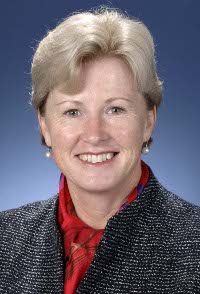ASIC hit by Senate criticism over ‘small’ multinationals
THE Senate Standing Committee on Economics has heard damning criticisms of the Australian Securities and Investments Commission (ASIC) and Taxpayers Australia is highlighting ASIC’s poor handling of how multinational corporations represent themselves in Australia.
Senator Christine Milne’s probing of ASIC’s ‘check-and-rein’ protocols has produced worrying insights, according to Taxpayers Australia, which also submitted to the enquiry “at worst, the government regulator has an ineffectual standing among multinational corporations, who are playing fast and loose with basic compliance and self-determination processes”. 
Taxpayers Australia’s head of tax, Mark Chapman said ASIC’s primary misstep — highlighted by Sen. Milne in session last week — was best summarised as “an inability to regulate Australian subsidiaries operating as part of larger, overseas parent companies”.
ASIC’s current Class Orders only require large organisations and large Australian-based groups to submit financial statements.
“The rub is this: businesses self-determine their size, and thus their eligibility to report to ASIC,” Mr Chapman said. “Self-determination requires an honour-based compliance standard.
“Therefore less-than-honourable businesses can dodge regulation by determining themselves ‘small’ with little apparent fear of ASIC validation.”
Taxpayers Australia claims Facebook Australia “looks to have done this, being an Australian subsidiary of a larger overseas parent company”.
“Given the size of the Facebook global empire, questions need to be asked about Facebook Australia’s ‘small company’ self-determination,” Mr Chapman said. “Its practices are sobering proof an overhaul is needed.”
In a submission to the Senate Standing Committee on Economics, Taxpayers Australia has sought to tackle the legislative grey area Facebook Australia – and Facebook US, being the parent – may be operating in.
“The fact remains, ASIC has not defined large multinational group disclosure arrangements,” Mr Chapman said. “Taxpayers Australia notes that under current law, ASIC’s existing Class Orders do not require multinational corporations to submit financial statements in respect of their Australian subsidiaries.
“Therein lies the worrying likelihood of ASIC missing out on critical financial information.”
Mr Chapman said Taxpayers Australia advocated it essential that not only ASIC follow the law in relation to self-determination, but that the law was appropriate in the first place.
“And clearly it isn’t,” Mr Chapman said. “We’re not calling for over-regulation but clearly when the parent company of one of the world’s largest corporations is able to legitimately describe itself as small – with all the implications that carries for the amount of scrutiny it will receive by ASIC and later the Tax Office – there is something very wrong with the rules.”
Taxpayers Australia said its understanding was that the Australian Taxation Office (ATO) can request financial statements from relevant subsidiaries of foreign multinationals, but ASIC’s laws do not support any such procedures.
“The two bodies should work in tandem,” Mr Chapman said. “As it is right now, any financial statements provided independently to the Tax Office would not be legally subject to audits by an independent third party, nor would they be need to be prepared in accordance with Chapter 2M of the Corporations Act 2001 (Cth).”
Taxpayers Australia is calling on the Senate Committee to clarify the extent to which ASIC consults with the ATO and other powers when formulating Class Orders.
“The partnership of ASIC and the ATO, with respect to multinational compliance, must be seen to deliver clear legislative strength,” Taxpayers Australia said in a statement. “If it does not, the government must act to strengthen the law covering the verification of self-determination processes.
“Proof the Tax Office is receiving quality information from foreign multinationals to aid ongoing compliance must be given, and ASIC must address glaring holes in Class Orders stipulating company self-determination criteria.”
ends

